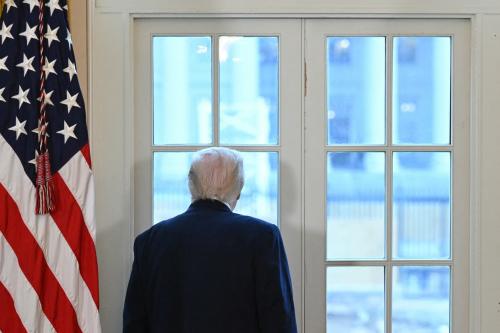On November 8, 1994, the Democratic Party suffered what was then its worst midterm defeat since 1946. At the time, I was deputy assistant for domestic policy in the Clinton administration. I will never forget the senior staff meeting in the Roosevelt Room the next morning. The names of the defeated Democrats were read, one by one. It was like the tolling of a church bell, an epitaph for the high hopes with which we had entered the White House less than twenty-two months before.
The results of the election led, within the administration, to a period of acute disorientation from which the resident of the Oval Office was not exempt. When the president returned from an immediate post-election overseas trip, he began reaching out in numerous directions—to longtime friends, elected officials, and even scholars. He sought answers to two questions above all: Why had the people so resoundingly rejected the Democratic Party (and, by implication, its leader)? And what should he do next?
The president’s quest soon shaded into what in any White House is a huge, decision-forcing event: the preparation of the annual State of the Union address. We all knew that the 1995 edition would be of more than usual importance. Everyone would scrutinize it for evidence of what the president had learned from the difficulties of his first two years and for the outline of a new direction during his next two.
And so, in a Clinton White House tradition little known to the wider public, several speechwriters and policy advisers, myself included, began a more formal process of soliciting memos from eminent thinkers on their ideas for the State of the Union, and putting those before the president.
The ten “memos to President Obama” that we present in this issue of the Washington Monthly are thus, for me at least, a replay of sorts. They are an attempt to solicit fresh thinking for a White House that needs it now as much as we did back then. Certainly the drubbing Clinton received in 1994 was every bit as bad as the shellacking Obama got in November, and the political road ahead seemed to us no less forbidding than it must to the current administration. The good news is that after listening to outside advice, Bill Clinton reconceived his presidency in the face of the Gingrich Revolution, and that reconception led, two years later, to his reelection. Barack Obama can do the same.
Read the full article here »
The Brookings Institution is committed to quality, independence, and impact.
We are supported by a diverse array of funders. In line with our values and policies, each Brookings publication represents the sole views of its author(s).



Commentary
Dear President Obama: You Need Help Now
January 5, 2011